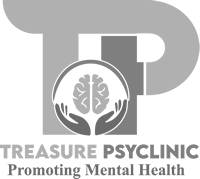
Talking about mental health can feel daunting, especially in societies where it is still stigmatized. However, having open conversations with family and friends about mental well-being is essential for breaking the stigma and fostering a supportive environment. In this article, we’ll share tips on how to talk about mental health, making it easier to communicate your needs and gain the support of your loved ones.
Key Sections:
-
Understanding Mental Health Stigma:
Mental health stigma occurs when society attaches negative beliefs or judgments to those who seek mental health care. This often leads to people hiding their struggles or avoiding therapy, fearing shame or rejection. This section explains the roots of mental health stigma and how it negatively impacts individuals, discouraging them from seeking the support they need. -
Why Talking About Mental Health is Important:
Engaging in conversations about mental health helps normalize the experience of emotional distress and encourages others to seek help as well. Open dialogue reduces the sense of isolation people feel when dealing with mental health issues and helps foster a culture of empathy and understanding. Highlighting the importance of these conversations can encourage more people to be proactive in supporting one another. -
Tips for Talking About Mental Health With Loved Ones:
Many people struggle with knowing how to start a conversation about mental health. This section offers practical advice on how to initiate a discussion with family or friends, starting with expressing how you feel, explaining what mental health means to you, and asking for support. It also touches on the importance of setting boundaries and ensuring that the conversation remains respectful and supportive. -
Encouraging Loved Ones to Support Your Journey:
While talking about mental health can be difficult, involving your loved ones in your journey can significantly impact your recovery process. This section highlights the value of family support, whether it’s through understanding your treatment plan, attending therapy sessions with you, or simply being a listening ear. It also emphasizes the importance of educating your family about mental health so they can better support you.
Breaking the stigma surrounding mental health starts with small but important conversations. By opening up to those closest to you, you can help foster a more understanding environment that encourages emotional support and healing for everyone involved.





